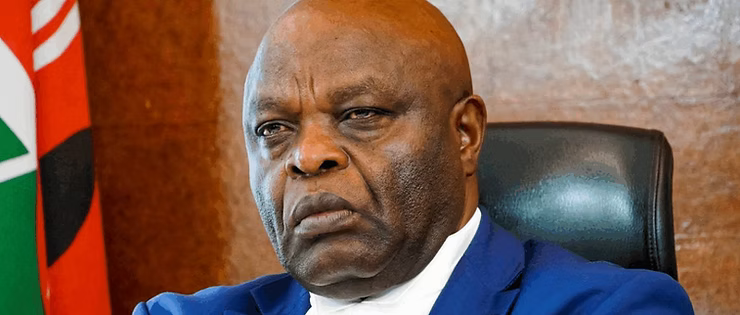
Justice Reuben Nyakundi of the Eldoret High Court delivered the judgment on Aug. 20, ruling that transgender people have the right to self determine their gender identity, and that the state must reflect this recognition in law and practice.
He urged parliament to consider enacting a Transgender Protections Rights Act, citing Kenya’s constitutional prohibition of discrimination based on sex, gender, or social status.
The decision came after a years-long case involving a transgender athlete identified as S.C., who was subjected to arrest, detention, and a forced medical examination in 2019. Officials accused her of “impersonating a woman,” humiliating her in custody, and detaining her in a men’s ward where she faced abuse and violence.
Nyakundi awarded S.C. $10,000 in damages for violations of her dignity and privacy, and further instructed the state to reform is detention policies to protect trans and intersex individuals.
“This is the first time a Kenyan Court has explicitly ordered the state to create legislation on transgender rights, and a first in the African continent,” Jinsiangu, a trans rights organization that represented S.C., said in a statement.

The ruling deserves celebration –quiet, cautious, but resolute. For trans Kenyans, many of whom face daily harassment and systemic erasure, the court’s recognition is more than symbolic. It signals and institution acknowledgment that their existence cannot be erased, no matter how much society resists.
Yet the path from judgment to justice is often littered with delay, sabotage, or hollow implementation. Courts may issue rulings, but parliaments can drag their feet, police officers can continue discriminatory practices, and public opinion, still shaped by deep-seated stigma, does not shift overnight.
What Justice Nyakundi offered, then, is not a destination, but a door cracked open. Whether Kenya walks through it remains to be seen.
The decision stands in stark contrast to the tightening chokehold on LGBTQ+ people across much of Africa. Uganda pass one the world’s harshest anti-LGBTQ laws in 2023, prescribing the death penalty in some cases. Ghana is weighing legislation that criminalizes advocacy, and Burkina Faso recently criminalized homosexuality altogether.
Yet alongside these punitive moves, there are glimmers of progress. South Africa, with its post-apartheid constitution, remains the only African nation to enshrine comprehensive LGBTQ rights, those social realities lack far behind the law. Botswana’s High Court decriminalized same-sex relations in 2019, a ruling upheld in 2021. Mozambique removed colonial-era sodomy laws in 2015, and Angola followed in 2019.
Even within Kenya, progress has been uneven. Intersex people are recognize legally, with an “I” marker on identity documents and a representative on the national human rights commission. This recognition, while imperfect, provides a framework for what could become trans-affirming policy.
Justice Nyakundi’s ruling draws from this precedent and insists that trans people, too, are entitled to the promises of equality.
Legal recognition is not a cure-all. It does not erase the humiliation S.C. endured when officers stripped her of clothes and dignity. It does not undo the violence inflicted by fellow detainees. It cannot immediately guarantee safe passage in a society were trans bodies are still sites of ridicule, assault, and denial.
But law matters, and recognition also matters. It shifts the terrain on which communities fight for survival. A Transgender Protection Rights Act, if passed, could provide recourse against discrimination in healthcare, education, employment, and housing. It could force the state to acknowledge what it has long refused, which is that trans lives are not shadows on the margins but citizens whose rights are constitutionally enshrined.
And for the African continent –where are too many governments weaponize homophobia and transphobia as nationalist credentials, Kenya’s ruling is a reminder that another story is possible. That dignity can be defended not just whispers or underground networks but in the formal record of law.
To cautiously praise this ruling is not to overlook the violence that persists. It is to mark the small victories as we prepare for the larger battles.
Kenya’s courts have now spoken and the question is whether its lawmakers and leaders will heed the call. The ruling could be buried under bureaucracy, or it could ignite a broader reimagining of who gets to be seen as fully human in the African body politic.
For S.C., for Jinsiangu, and for every trans Kenyan, the hope is fragile but alive, that the law might finally recognize what they have always known –that their gender, their dignity, and their lives are not negotiable.